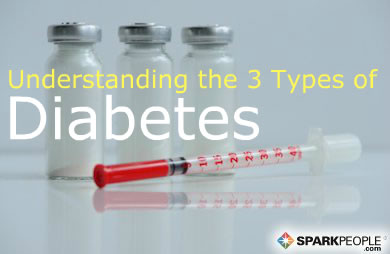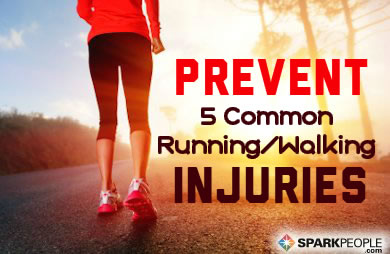|
In our mile-a-minute, super-stressed world, it's all too easy to dismiss symptoms or allow them to be drowned out by the noise of life—especially if there's an underlying fear or anxiety of seeing a doctor. For those on weight-loss journeys, ailments are often chalked up to a side effect of being overweight or obese, when they actually could have more serious implications. In many cases, medical red flags go unheeded until they ultimately result in a more serious or even life-threatening emergency. If you notice any of these health signs, take action right away—your life could depend on it. 1. Facial Drooping or Difficulty Talking These are common warning signs for stroke, and should never be ignored. "Recognizing these signs and getting treatment quickly can literally stop a stroke in its tracks, save brain tissue and reduce the damage done," says Matt Likins, physical therapist with 1st Choice Physical Therapy. According to the American Stroke Association, the acronym to remember is F.A.S.T.—Face drooping, Arm weakness, Speech difficulty, and Time to call 911. Likins recommends doing the smile and whistle test if you're questioning whether your symptoms are serious—if either action is difficult, call 911 immediately. 2. Neck or Back Pain Because these are such common ailments, many people tend to suffer through them without seeking treatment. Physical therapist Vivian Eisenstadt says that's a mistake. "Pain is information, and if you ignore that information, it can get louder," she warns. "If you ignore neck pain that persists for longer than a week, you could be causing much more harmful damage. A slight impingement can turn into long-term nerve damage if not addressed." As a general rule, Eisenstadt suggests her patients come in for an appointment anytime they have pain for longer than a week. "If it goes untreated, you are not only treating the original issue, but you will also have to undo all the ways the body compensated for the [initial] pain." 3. Dry Mouth with Increased Urination When you notice this pair of symptoms, especially at night, it could indicate that the body is struggling with high blood sugar levels. "The urge to urinate may be coming from the kidneys' effort to rid the body of excess sugar, not from simple thirst," says certified diabetes educator Nancy Rodrigues. "This leads to dry mouth. What most of my patients believe is dry mouth is initiating the increased intake of water or other liquids, sometimes as much as a gallon a day." Diabetes lifestyle expert and registered dietitian Toby Smithson points out that fatigue and hunger may also accompany the dry mouth and increased urination. "Sometimes people shrug off these symptoms, thinking they are related to the aging process," she explains. "With Type 2 diabetes, symptoms often go undiagnosed for 10 years—even to the point that a complication of diabetes can become a symptom, like nerve pain (neuropathy) and persistent infection, which also may be ignored." Early treatment is critical for people developing Type 1 diabetes, Smithson notes, as excessively high blood sugar levels can lead to a life-threatening condition called diabetic ketoacidosis (DKA). For people with Type 2 diabetes, earlier treatment and lifestyle changes will slow the progression of complications and allow for daily management of this chronic condition. 4. Delayed Onset Muscle Soreness (DOMS) It's normal to experience some degree of delayed onset muscle soreness 24 to 48 hours after a workout, but if it lasts longer than two days, there could be an underlying issue. "Your body will naturally heal itself, but if there are underlying structural issues, your body will not have the full capability to do that within the typical time frame," says sports chiropractor Dr. Matt Tanneberg. "Getting any issues taken care of sooner will help the condition heal faster. The longer you wait, the harder the issue is to fix." 5. Snoring While snoring is often dismissed as annoying or maybe even funny, it can also be a warning sign of a dangerous condition called sleep apnea. "More and more people are being diagnosed with obstructive sleep apnea," says certified sleep science coach Bill Fish. "Essentially, the body stops breathing up to hundreds of times per night and then reflexively gasps for air, putting a tremendous amount of strain on the heart on a nightly basis. Studies have shown that individuals with severe sleep apnea are more likely to experience sudden cardiac arrest." If you regularly snore, Fish recommends making an appointment with a medical professional or sleep doctor, who can determine whether you suffer from obstructive sleep apnea and recommend various forms of treatment. 6. Nerve Pain Nerve impingement (also known as a pinched nerve)—which can come from the spine (bone or discs) or from muscle—will produce a variety of symptoms, which may include shooting pain, numbness, tingling or burning. It’s tricky to differentiate typical muscle soreness from nerve-related muscle pain, Dr. Tanneberg notes. "Indicators would be more intense soreness than what is typical for you, or the soreness lasting longer than 48 hours after exercise. If you have pain that moves to different areas, or 'radiates,' that is most likely a nerve issue." The doctor warns that if a nerve is impinged for long periods of time, it will physically die off. To prevent this, you should get checked out by a professional, such as a chiropractor or physical therapist, in order to figure out what and where the problem is and take a course of action to fix it. 7. Urinary Changes If you're experiencing more frequent urination, pain or burning with urination, blood or odor in the urine, your symptoms could indicate a more serious problem, such as a urinary infection, overactive bladder or enlarged prostate, says Dr. Arash Akhavein, a urologist at Comprehensive Urology in Los Angeles. Waking up more than twice a night to use the restroom, finding it difficult to hold urine or experiencing leakage are also worrisome symptoms you should monitor in case of the aforementioned issues. "If you have any symptoms that make you worry or that persist with no simple explanation, it would be best to act as an advocate for your health and seek help from a medical professional to either reassure you or address accordingly with further testing or treatment," says Dr. Akhavein. 8. Unwillingness to Get out of Bed We all have days when we need more down time, but if you find that you don't feel like getting out of bed or doing anything for a prolonged period of time, it could be a sign of depression. "Everyone sometimes feels tired or lazy, but if you find that most days you don't feel like getting out of bed or actually can't make yourself do it, don't ignore the problem," says Raffi Bilek, LCSW-C, mental health counselor and director of the Baltimore Therapy Center. "Depression is an illness as real as any physical symptoms, and it can be just as painful, if not more." If you experience prolonged or extreme feelings of fatigue, hopelessness or unwillingness to participate in daily activities, contact a mental health professional. "It may seem like nothing will ever change—that is the voice of depression—but, in fact, depression can be treated effectively with therapy, medication and other options," Bilek assures. 9. Bleeding Gums Many Americans brush off a bleeding gums as a normal side effect of daily dental care, but Dr. Leslie Renee Townsend, D.D.S. and regional dental director for Jefferson Dental Care, says it can indicate a larger health concern, such as rampant gum disease, diabetes or even heart disease. Without intervention, gum disease can lead to tooth loss, as well as contribute to aggravated health conditions throughout the body. “Patients shouldn’t ignore bleeding gums, which not only affect oral health but also other systems of the body,” she says. "If you notice a bit of blood when brushing or flossing, especially when paired with swollen, puffy or sore gums, dry mouth, loose teeth, or in conjunction with the development of a chronic illness, it’s time to see a dentist for a diagnosis.” 10. Pain in the Left Arm/Left Side of Body According to Dr. Garth Graham, expert cardiologist and president of the Aetna Foundation, this is a classic symptom of a potential heart attack that should never be overlooked. "According to the Centers for Disease Control and Prevention, about 15 percent of people who have a heart attack will die from it," the doctor points out. "Never dismiss a symptom on your own—always seek out a medical professional." 11. Joint Clicking and/or Popping (With Pain) Most of the time, the "snap, crackle, pop" you might hear when standing or moving is common and not concerning. When it's not painful, clicking and popping in the extremities (shoulders, elbows, wrists, hips, knees and ankles) can usually be attributed to normal cartilage wear and tear from aging. But, as Dr. Tanneberg points out, if the clicking or popping is accompanied by pain, that can indicate a more serious structural issue in the joint and warrants a visit to a medical doctor, chiropractor or physical therapist. 12. Frequent or Extreme Fatigue While it’s normal to be tired after physical exertion, lack of sleep or prolonged stress, Allison Williams, N.D. at the Southwest College of Naturopathic Medicine warns that chronic fatigue can suggest a variety of things—from the early signs of chronic stress or a poorly functioning thyroid gland, to something as significant as the early signs of an autoimmune disease. “If fatigue persists after we adjust our busy work schedules, get in some rest and relaxation, and make sure we're eating all the green food we know we should, it's time to chat with a doctor,” she suggests. Keep in mind that you know your body than anyone, and it’s important to listen when it’s telling you something is different or might be wrong. SparkPeople is not a medical resource, so you should always consult with a physician or trusted healthcare professional if you experience these or any other worrisome symptoms. In many scenarios, these symptoms could have less serious causes, of course, but if something is persistent it’s worth checking out for peace of mind. |
Related Entries
More From SparkPeople
|






.jpg)














.png)
